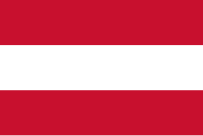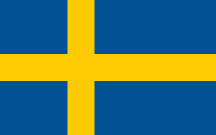Europeana/1914-18


In 2017, as part of the centenary of WWI commemorations, Europeana challenged Wikimedia affiliates to create a portfolio of their past and current activities relating to the theme of 1914-18. Judged by an expert jury, submissions closed on July 31.
Europeana will showcase the collection of winning portfolios to demonstrate the diverse, innovative, and high-quality ways that this important period of Europe's history can be understood through open-access heritage, with an emphasis on working with its partner cultural institutions across the continent.
- The challenge concluded on July 31. Any activities coordinated by the participating affiliate until that date could be included in the portfolio!
- There were five categories: highest quality results; most innovative project; most diverse portfolio of projects; best partnership project with a Europeana partner GLAM; and overall.
- Any Wikimedia affiliate could participate and submit a portfolio of activities
- Any 1914-18 related activities could be included in the portfolio, even (or indeed especially) if it were not directly related to WWI or if the Affiliate's country was not part of the War
- At least one activity included in each portfolio must be in collaboration with a Europeana partner GLAM or use a Europeana service (such as the API or the 14-18 website)
- Activities being run as part of existing projects, as well past-activities, were both allowed to be included in the portfolio

Europeana 1914-1918 is a pan-European project concerning WWI focusing on the human aspects of the conflict and on digitising private collections of family memories across the continent. The Europeana 1914-1918 website brings together resources from three major European projects each dealing with different types of First World War material. The result is an archive that allows the national collections of libraries to sit beside personal stories and treasures and important film archives.
Participating affiliates[edit]
Click to see the portfolio of activities from each participant. Completed submitted portfolios:
Suggested activities[edit]
For inspiration[edit]
Affiliates can organise all sorts of activities to build their portfolio of 1914-18 related projects, as long as at least one activity is with a Europeana partner or uses Europeana content. Examples of activities could include:
- Introducing your local GLAM to become a Europeana so they can Share their data
- A photohunt of WWI memorials and locations (photo event earning patterns)
- A Wikipedia translation campaign
- An OpenStreetMap mapping trip to WWI sites
- Wikisource digitisation/transcription project
- A GLAM content donation (GLAM learning patterns)
- Wikidata imports/visualisations
- A thematic editathon. For example - did your country enact Women's suffrage during 1914-18? (editathon learning patterns)
Ready to go projects[edit]
1. Use Europeana 14-18 images that are already on Commons. Categorising, transcribing and using in Wikipedia these 1000 images brought by members of the public to Europeana "collection days" across the continent. See the popular items via Baglama and Glamorous tools. For example this image of a gas bomb is currently the most re-used Europeana 14-18 image on Commons - add it to relevant pages in other language wikis. Some examples include...
2. Host a Transcribathon and re-use that content in WikiSource

Digitisations of handwritten testimonies from WWI’s home- and battle-fronts and are available in 21 languages on Europeana's Transcribathon.eu website. All are first-hand accounts of people who experienced the war, unique primary sources in need of being disclosed for research and reuse. The texts (manuscripts as well as the transcriptions) are available under a CC-0 licence and can be shared to Wikimedia Commons, Wikisource or Wikipedia.
3. Use already-transcribed content
By filtering the site for already completed content, you can discover postcards, letters, diaries etc which could easily be uploaded to Commons, or used as primary-source references for Wikipedia articles.
4. Upload to Commons content from the Europeana 1914-18 site and use in Wikipedia articles.
There is both crowdsourced and GLAM-originating content, sortable by type (diary, photo, document, postcard...), subject (navy, propaganda, women, trench-life...) or front (Italian, Eastern, Western, home).

5. Upload or reference some of the 650 hours of films and related material from the European Film Gateway including newsreels, documentaries, fiction films, propaganda and anti-war films
Suggested partner organisations[edit]
- Europeana staff will provide support to help organise events, connect contacts, and identify thematically relevant content that could be used in projects.
Please contact Ad Pollé <ad.polle![]() europeana.eu> or Liam Wyatt <liamwyatt
europeana.eu> or Liam Wyatt <liamwyatt![]() gmail.com> for details of how to contact any of the following:
gmail.com> for details of how to contact any of the following:
| Countries/cities with Europeana 1914-18 partners |
|---|
|
Just some of the partner GLAMs contributing to Europeana 1914-1918:
| NATIONAL LIBRARIES |
|---|
|
| FILM ARCHIVES |
|---|
|
Full Details[edit]

Timeline[edit]
- From 1 February: Affiliates run activities, and build portfolio page. Past activities related to the theme run by the affiliate can also be included
- July 31: Portfolio page, formatted in whichever way the affiliate wishes but written in English, is complete
- August: Europeana will collate submissions and republish on the Europeana 1914-18 website, Jury deliberation & announcement of Winners
- November: Overall winner invited to present at the Europeana plenary, in Milan
Prizes[edit]
There will be five winning affiliates - one overall, four category prizes.
The Overall winning Affiliate will receive:
- A large-scale print on canvas or aluminium of a topic-related artwork to the affiliate
- Invitation to a representative of the winning affiliate to present their activities at the Europeana plenary event (late November, Milan); including travel and accommodation for the event [Europe only].
- An Amazon voucher of €100
Each winning affiliate for four categories receive an Amazon voucher for €100
- Categories:
- highest Quality produced,
- most Innovative project
- most Diverse portfolio of projects
- best Partnership project with a Europeana partner GLAM
Rules[edit]

- Participation in this campaign is open to Wikimedia Affiliate organisations to undertake a series of activities responding to the theme.
- Participants can organise new activities that conclude before July 31, and
- Past activities, that have already concluded, can also be included in the report if the activity was demonstrably sponsored/supported by the affiliate at the time.
- Each participating affiliate must create a sub-page where all of their activities are listed and documented. It may include any relevant links, images and details that the affiliate wishes to include.
- All activities must be concluded and described by July 31. The participating affiliate's page is the portflio.
- All activities must be thematically related to the period 1914-18. This does not necessarily mean WWI battles or military units, but must be thematically linked.
- At least one activity submitted by each participating affiliate in their portfolio must be
- A use of, or contribution to, Europeana content (see for example, the content browse options on the 1914-18 website, or the Europeana API), or
- A collaboration activity with, or re-use of content from, a Europeana partner organisation. (For support identifying your local Europeana partners, please contact ad.polle
 europeana.eu or liamwyatt
europeana.eu or liamwyatt gmail.com)
gmail.com)
Jury[edit]
- Members of the advisory board of Europeana 1914-18
- Dan Cohen, Director of DPLA
- Harry Verwayen, Deputy Director of Europeana Foundation
FAQ[edit]

- What is a 'Portfolio'?
In this project a portfolio is the sub-page of this Meta page for your Affiliate, written in English. Use it to create a report, in whatever format you like, of the activities past-and-present your Affiliate has done relating to this theme. It is your submission to the challenge. Use the sub-page in the mean-time for planning and documenting activities, so long as it is 'ready' on July 31. - My country wasn't involved in WWI, or, the activities we want to do aren't directly about the War. Can we participate?
Certainly! The theme is 1914-18 so we are looking to show the interesting and diverse effects on society that the War had. This could include things like: the Centenary of Womens' suffrage in your country; Refugee migrations from/to your country as a result of the War; Revolutions or political changes that happened at that time... - We did a project in 2016 (or 2015, 14...) that would fit this theme, can we include it?
YES. For example, you might have run one of the 2013 WWI ediathons. All you have to show is that the Affiliate was responsible for the activity, and that it is related to the theme. - Why is this project talking about the Affiliates participating, not individual wikimedians?
There have been many wiki-competitions and campaigns over the years, run by Wikimedians/GLAMs/Europeana/others, where individual volunteers compete for prizes based on a points-system (including Wiki Loves Monuments, CEE Spring, WikiCup and Europeana's own Art History Challenge & 1989 Challenge...). This time, Europeana wanted to encourage the Affiliates (Chapters, User Groups, Thematic Organisations) to use their resources and relationships with local GLAMs to join in competition/collaboration directly. Obviously the work of volunteer contributors will be crucial to any activities. Note, this is a qualitative (jury, not points) campaign that requires partnership with GLAMs and encourages a variety of different activities to include in a portfolio, instead of being a quantitative competition that encourages all participants to do the same activity. - I'm not from Europe, can my Affiliate be an official participant?
Yes, of course. Because this project is run by Europeana it obviously has a European focus, but non-European contributions are welcome. You might have to be creative to include a Europeana-partner or service in your portfolio, but we are working to accommodate DPLA as a partner too. Please contact the project organisers if you have questions about this. Do please note that the travel-costs for the major prize are restricted to within Europe. - We already have a an activity planned for another project (and/or with another Affiliate), can we include it our portfolio too?
Certainly. As long as it fits the criteria of being related to 1914-18 and, ideally, working with a Europeana partner organisation.


















